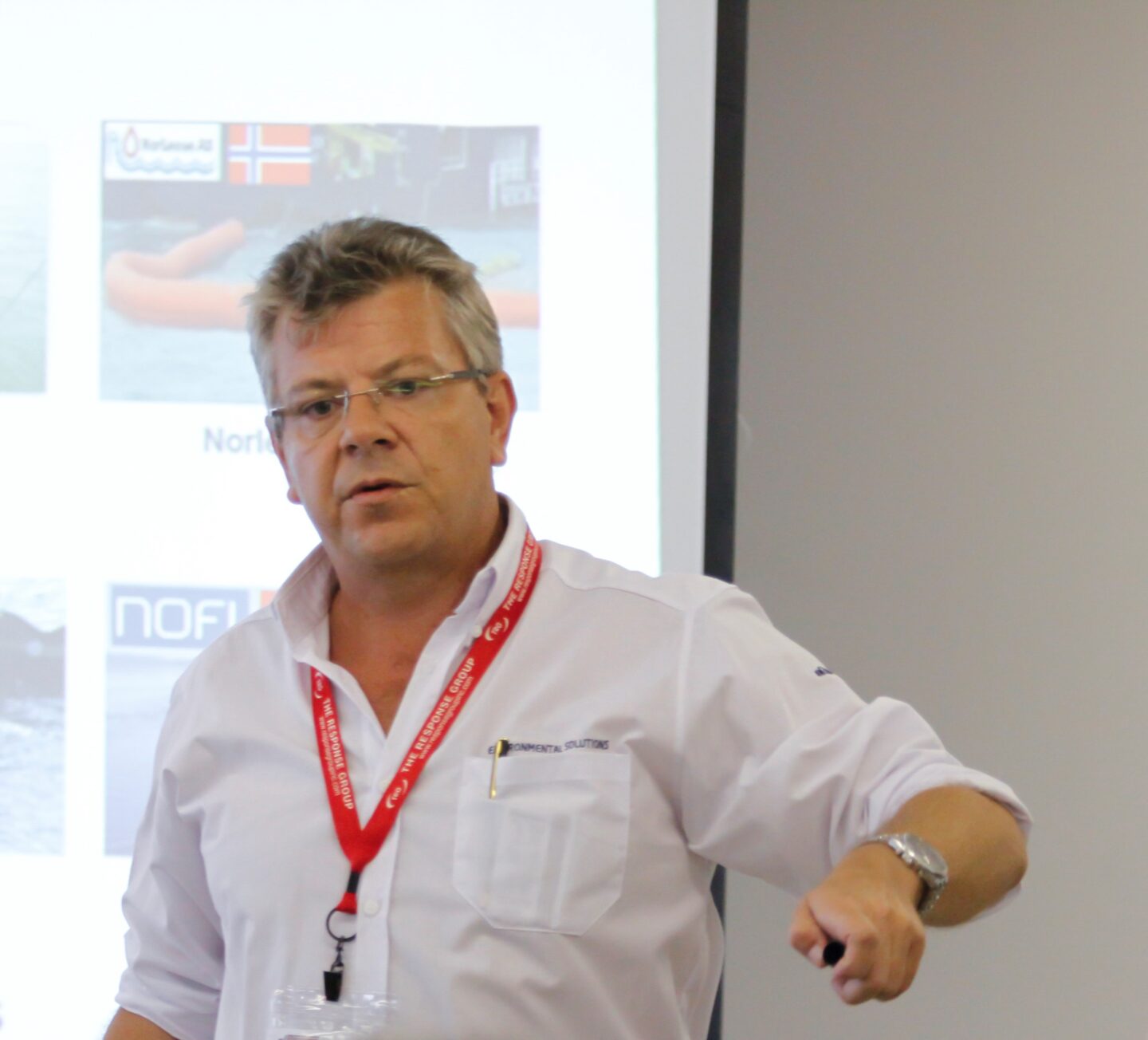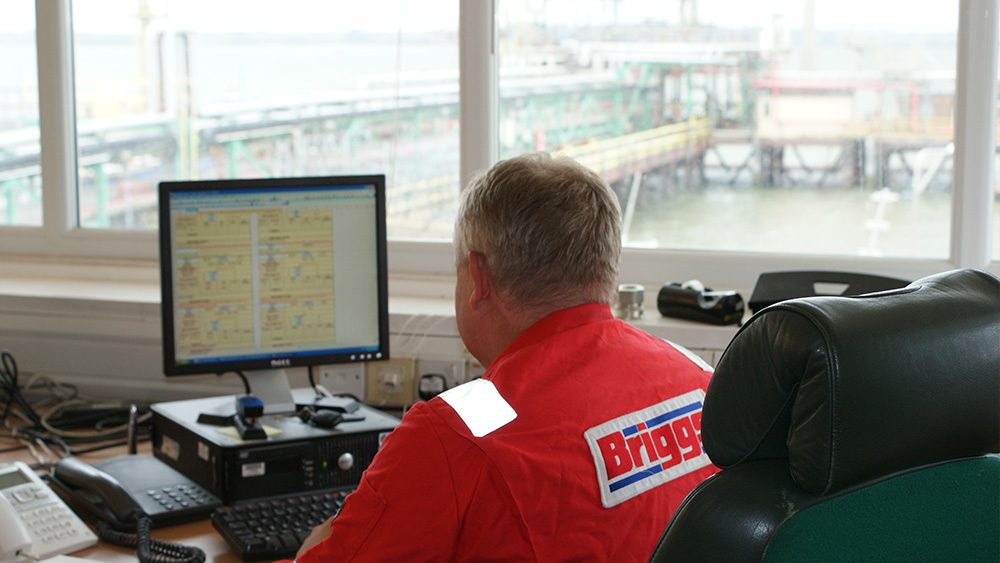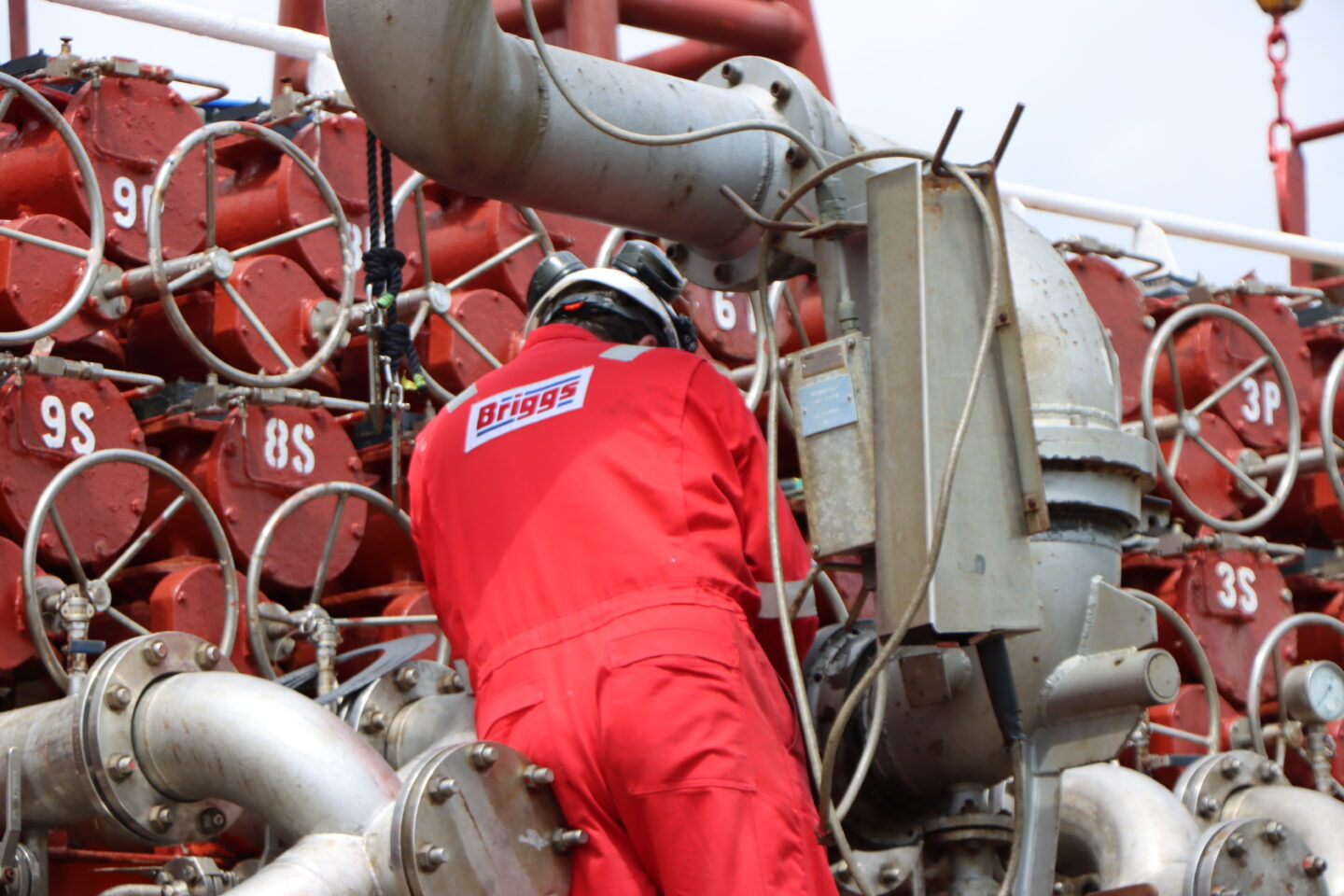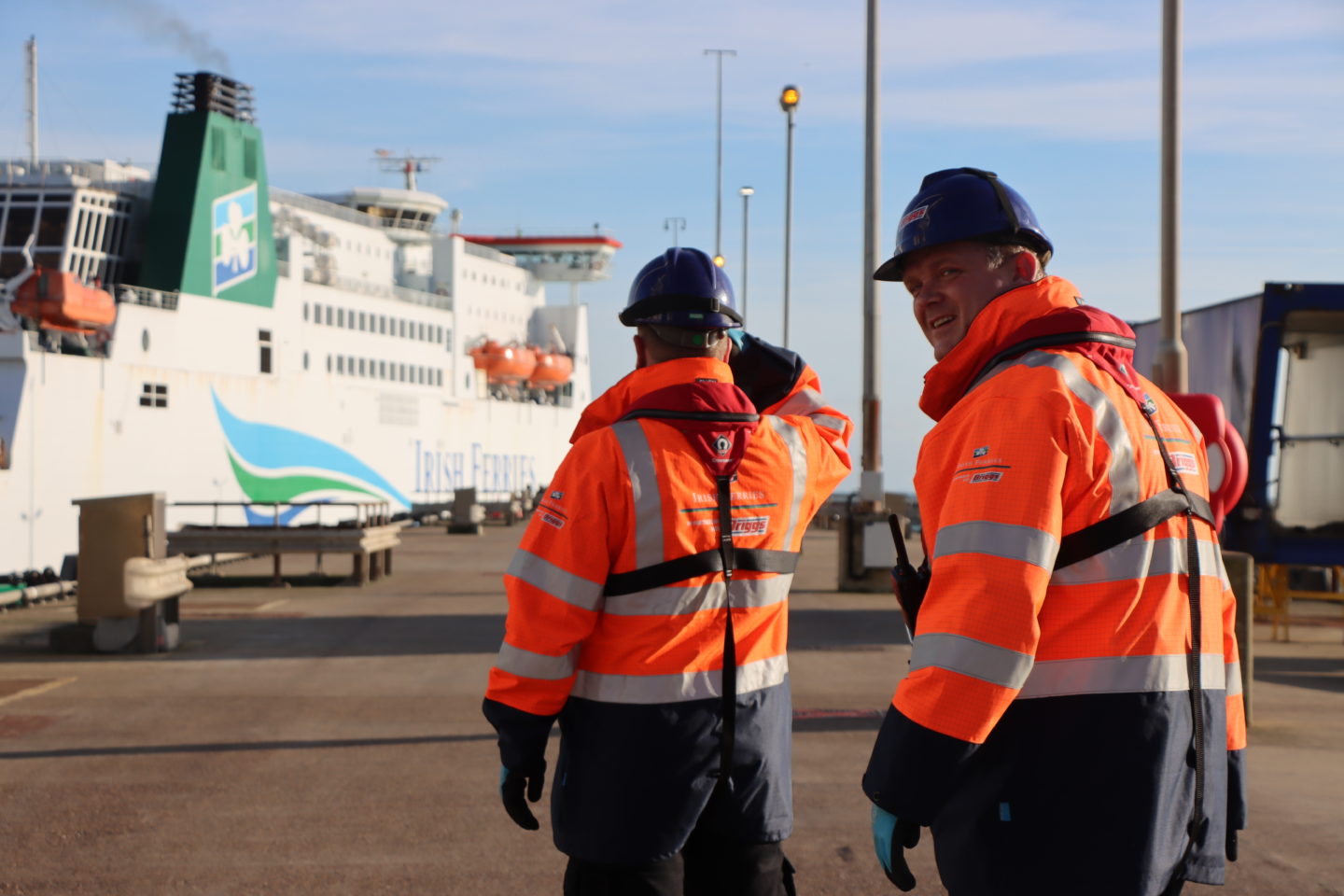Supply Training Courses Adapted for the Renewable Energy Sector
John Cantlie
- Position: Senior Instructor for Environmental Training
- Site: Aberdeen
Meet our new Senior Instructor, John Cantlie
Before joining Briggs back in 2001, I spent 15 years working at sea. I started off fishing and during the decline of the fishing industry, I moved into the Oil Industry where I worked as Chief Mate onboard the vessels.
When I first joined Briggs Marine, I was based in Burntisland from where I attended oil spills around the UK and also got involved in other projects within the company. In August 2002, the opportunity arose to become an Area Supervisor located in Brazil. This involved dealing with oil spills, training the local people and establishing over 40 response bases for the principal National Oil Company (Petróleo Brasileiro S.A) and Alpina Briggs (a joint venture company). Up until 2009, I was located in the Amazon region of Brazil dealing with oil spills and delivering training. In 2009, I was promoted to Operations Manager and moved to Sao Paulo where I managed many major incidents involving shipping and oil platforms in Brazil and other South, Central & North American countries. From 2012 onwards, I became Head of Training delivering accredited courses in Brazil and other countries for all major oil companies, ports and other oil handling facilities. In March 2019, I moved back to the UK, taking on the position as the Senior Instructor with Briggs Marine. Since joining the department, I have been busy updating all of the training courses, refurbishing our training centre in Aberdeen, and preparing new courses for our online platforms.
How long has Briggs Marine been offering Environmental Training?
Briggs Marine has been a principal supplier of oil spill training courses for over 30 years in over 30 countries worldwide.
How many different courses do we offer?
Today we offer around 20 different training courses relating to oil/chemical response across all sectors of the industry.
For ports, harbours, oil terminals, and the offshore industry we supply the MCA accredited courses which are derived from the IMO OPRC courses. There are 5 levels of certification including Level 1 Familiarisation, Level 2 First Responder, Level 3 On-Scene Supervisor, Level 4 On-Scene Commander & Level 5 Spill Response Manager.
For the offshore industry, we have the DBEIS (Department of Energy and Business strategy), OPEP-1 CBT training, and the OPEP-2 Corporate Management training courses.
Onshore we can supply training courses adapted for the renewable energy sector, industry & fuel transportation companies.
Is the new online training system live yet and if so, what is it called?
Our online training courses are now live. OPEP-1 CBT training and other courses are now available. We are looking at developing new online courses throughout the year for all sectors of the industry.
Visit our Training Services page for details of courses available.
Who do we train?
- Harbour Masters, Assistants, and harbour staff to all levels
- OIM’s, Barge Engineers and other offshore personnel that require OPEP training
- Onshore management for oil companies
- Response teams for oil terminals, pipelines & refineries etc
- Renewable energy maintenance staff
- Construction site maintenance staff
- Armed forces personnel
- Industrial sector
What new courses & other services will be available?
- Incident Management based on the well-proven Incident Command System ICS-300, which can be used to manage incidents of any nature including oil spills, flooding, major accidents etc. This course has been accredited by the Nautical Institute and will introduce the delegates to development of the Incident Action Plan.
- Inland Spills is a one-day course designed for dealing with spills on land and in small watercourses. This provides both theory and a practical element and has been also been accredited by the Nautical Institute.
- Other services include delivering IMT (Incident Management Team) Tier 2 Oil Spill exercises which are a requirement for all MCA approved contingency plans and have to be conducted once every 3 years. We design the exercise, execute, prepare the final report, and update the Contingency plan following the exercise.
Do these courses take place face-to-face, online or both?
We have online courses available on our E-Learning training site including the OPEP-1, as well as basic response courses for renewable and other sectors of the industry.
In response to the current COVID-19 pandemic, we have been permitted to deliver remote refresher training for MCA and OPEP courses.
Can all courses be taken either face to face or online? and if not, which ones are face-to-face and which ones are online?
At present only the MCA-refresher courses can be delivered by remote training, again this is only due to the current situation and will return to normal once the situation improves.
Do we offer bespoke training?
Certainly. All courses can be adjusted to client’s requirements for any industry or area.
What are the benefits of Environmental Training?
Many companies deem environmental training to be an unnecessary cost and rarely take into consideration the benefits that a well-trained team can bring to the overall outcome of an oil spill incident.
Nowadays, oil spills are few and far between. However, when they do occur, the initial actions of the response team are critical in minimising the impacts to human health and the environment as well as the media attention that the incident will bring if it has not been dealt with adequately.
Dealing with oil spills is not an easy task. To be successful, the following key elements are required.
- An incident Management Team who are well trained in their roles and responsibilities
- A realistic contingency plan that has been well tested
- A response team who are well trained and quick to respond
- Resources that are well maintained and adequate for the working area.
- Defects in any of these elements will greatly impact the success of the response.
Training and preparedness are principal components of the OPRC (Oil Pollution, Response, preparedness & cooperation) convention of which many countries including the UK have ratified.
Visit our Training Services page for details of courses available.

“From 2012 onwards, I became Head of Training delivering accredited courses in Brazil and other countries for all major oil companies, ports and other oil handling facilities. In March 2019, I moved back to the UK, taking on the position as the Senior Instructor with Briggs Marine.”
John Cantlie, Senior Instructor for Environmental Training
-

Application Process
As Briggs Marine continues to grow, the company has a diverse selection of vacancies available. Here is what you need to know about our application process. -

Training Opportunities
Briggs Marine’s offer a range of training opportunities to develop the skills within the workforce and keep staff engaged by providing progression opportunities. -

Meet the Team
Established in the 1970’s, the family owned Briggs Group, currently employs over 800 dedicated members of staff. Meet the Team…